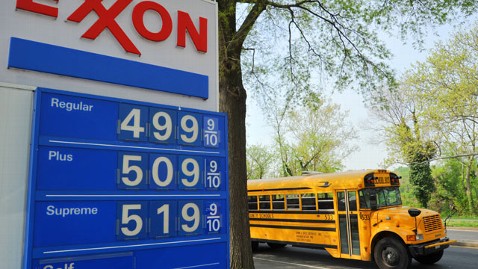Iran Oil Blockade Would Send Gas Prices Through the Roof

Image Credit: Karen Bleier/AFP/Getty Images
Cutting off the flow of oil through the Strait of Hormuz, a small waterway that borders Iran, could disrupt roughly a third of the world's tanker traffic and send oil prices skyrocketing, analysts say.
The Iranian First Vice President Mohammad Reza Rahimi Tuesday threatened to close the strait if other countries sanction Iran's crude exports because of the country's nuclear ambitions.
Roughly 20 percent of the world's oil supply travels through the strait, which is only 20 miles wide, making it a tempting target for an Iranian naval blockade.
Shutting down the Strait of Hormuz would be "easier than drinking a glass of water," Iran's naval chief, Adm. Habibollah Sayyari, said.
If Iran follows through on the threat, experts predict it could quickly translate into higher prices at the gas pump. Carl Larry, president of Oil Outlooks and Opinions, said that "depending on how long this goes on, by summer time we could be looking upwards of $5 a gallon."
Such a price increase from today's average price of $3.26 a gallon could prove disastrous, according to economists at Moody's, who say it would divert $218 billion in consumer spending in a year from discretionary items such as restaurant meals, vacations and trips to the shopping mall straight into the gas tank.
For now, however, the move seems unlikely. The United States Navy has vowed to stop the Iranians, saying that any attempt by the Iranians to disrupt traffic or otherwise block off the Strait of Hormuz "will not be tolerated."
The U.S. government has also yet to back away from plans to impose sanctions on Iran.